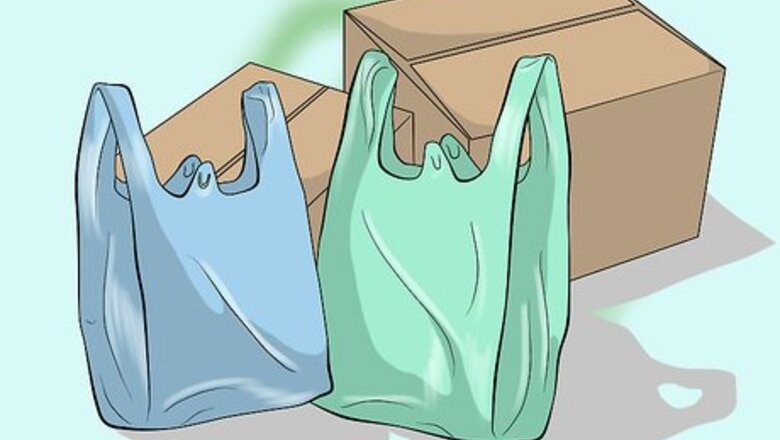
views
Purchase items in bulk.
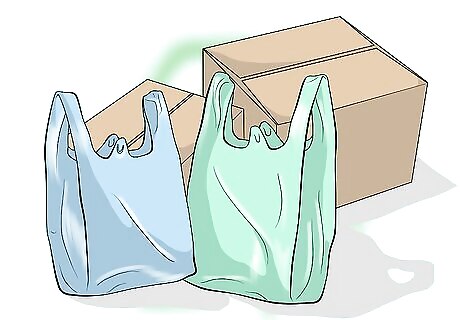
Products that are packaged in larger packages typically use less packaging per product than smaller packages. Check this out the next time you are shopping.
Analyze the size of the packaging for the products you buy.
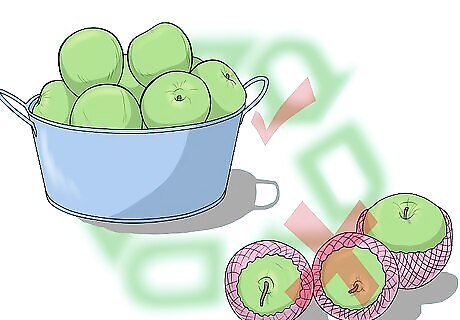
Choose to buy items that use no packaging or a minimal amount of packaging. For example, buy apples from a bin rather than wrapped up on styrofoam with plastic around them.
Buy items that are packaged in recycled cartons.
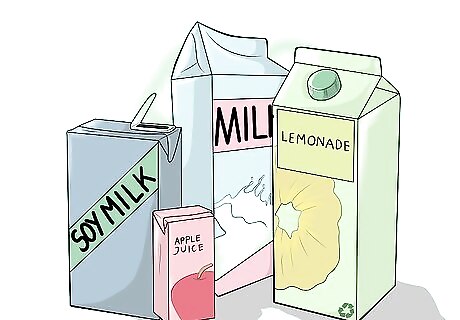
This helps to promote recycling. Avoid items like single-use straws, plastic water bottles, and grocery bags.
Choose to purchase items that are made from recycled products.
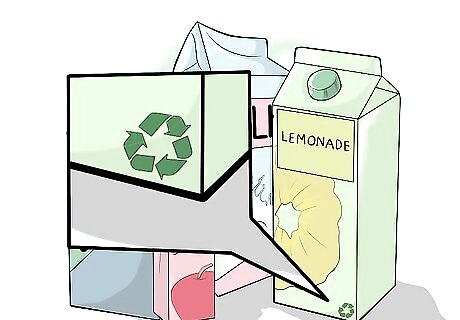
This shouldn't be difficult to figure out. Most things made from recycled products advertise this fact, so that you know you are helping the environment when you purchase them.
Recycle items rather than sending them to the landfill.
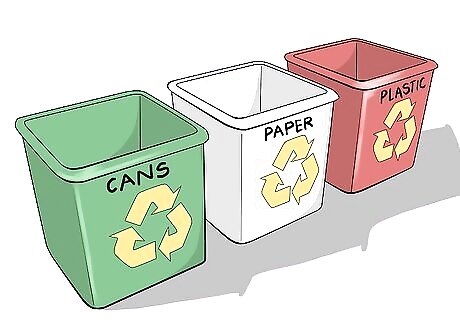
Keep a recycle bin or bag in your home to place plastic, paper and cans. Carry these recycle items to your recycling station. Some towns offer curb side recycling.
Place food scraps in a compost bin.
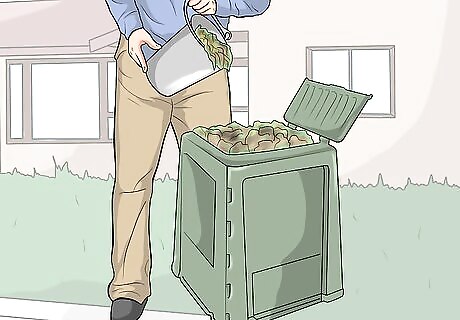
You can also use newspaper and other biodegradable items to make compost.
Carry cloth bags to the grocery store or market.
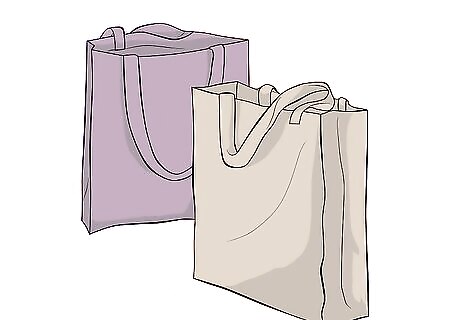
Use these bags in place of plastic or paper bags that will be thrown away. Reuse the cloth bags each time you shop.
Give items to charity or sell in a yard sale.
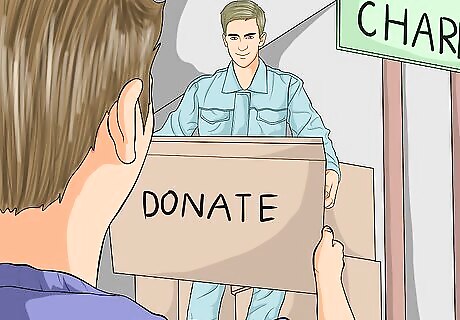
This prevents unnecessary waste going to landfills. Sometimes, 1 person's trash is another person's treasure. This is a wonderful way to recycle items.
Find a way to reuse items rather than throwing them away.
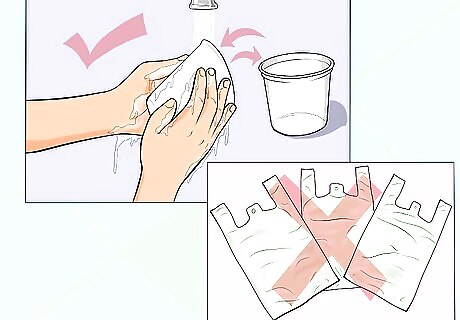
An example would be to wash and reuse plastic containers. Then, you can eliminate using plastic baggies that need to be thrown in the trash.
Reuse items for a different purpose than originally intended.
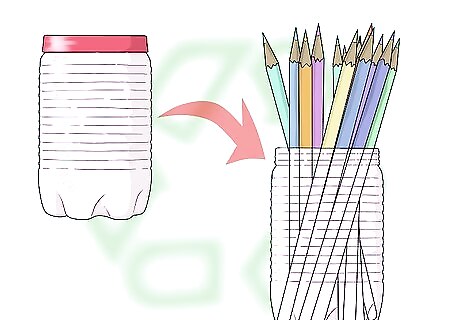
This is called "upcycling." For example, you could make a pencil holder out of a metal can.
Return packaging when possible.
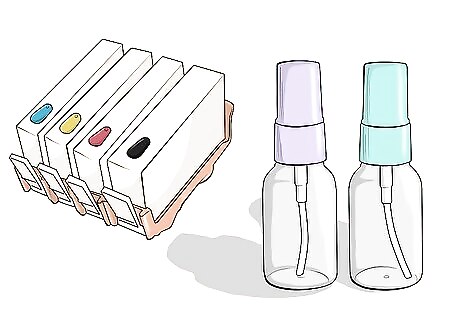
Check to see if the packaging you are about to throw away can be returned for refill. Soft drink bottles sometimes offer a deposit for returning to the store. Computer ink cartridges can be returned and refilled.
Pick up only what you need.
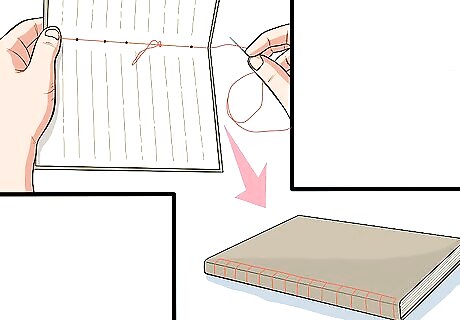
Avoid throwing items away unnecessarily. Borrow items that you might only use occasionally. Try to fix an item rather than throwing it away, or see if someone else can fix it for you.
Recharge batteries rather than using disposable.
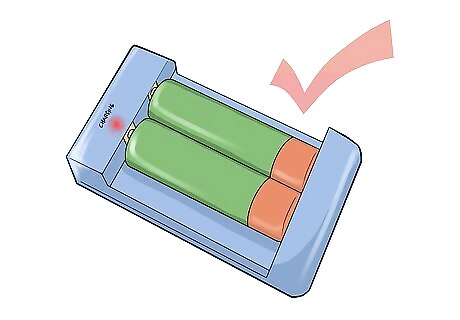
You will save money in the long run and keep these items out of landfills.
Teach others about the benefits of reducing solid waste.
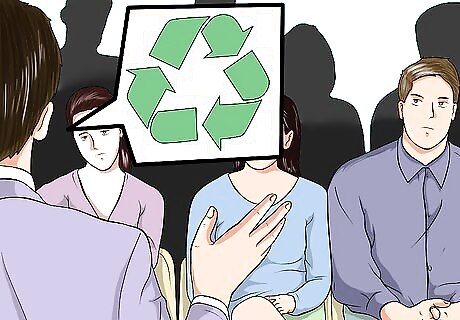
Talk about reducing solid waste in the schools and at community events. Promote ways to reduce solid waste in public service announcements on the radio and television.















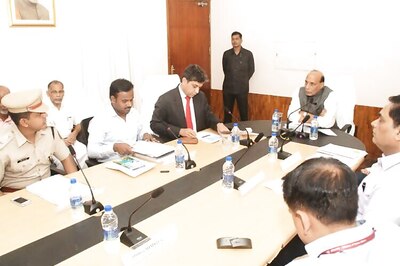


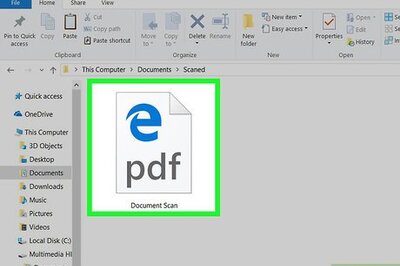
Comments
0 comment